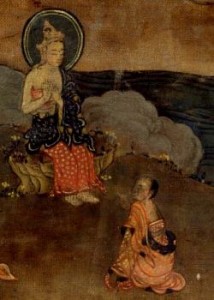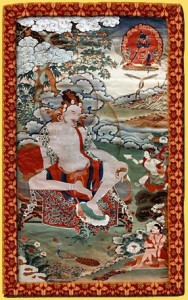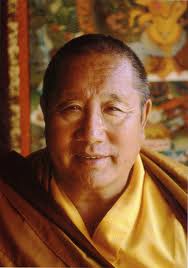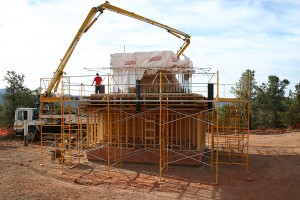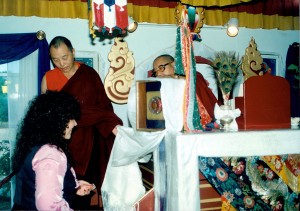The following is an excerpt from a teaching by Jetsunma Ahkon Lhamo called “Love Now, Dzogchen Later”
If you can’t be bothered to join and give some help, some support through having given rise to the bodhicitta, and having habituated oneself towards understanding the nature of samsara, which is also your responsibility, and habituating oneself towards deeply understanding the suffering of all sentient beings, which is also your responsibility, then there’s not much hope for good practice, no matter what practice you do. You can’t get away from it, no matter how wonderful you are. Compassion is in the mix. And there’s not much time. None of us knows how long we will live. It is not appropriate to say I’m going to wait, wait, wait, wait, wait until I get my stuff ironed out, and then, THEN I’ll try the bodhicitta. You’ll never get the chance. Believe me, my friend. I’ve seen it time and time again. You will never have the opportunity.
When you accept the path of the Dharma, and you commit yourself to the idea of liberation, at that point, you have to accept what has actually been taught. You can’t pick and choose what you want. You can’t make up your own little gig and call it Buddhism. Because all of the Buddhist teachings, every one, from the simplest level in the Deer Park when Lord Buddha was actually alive to this very day and whatever terma revelations may even be realized in this time, the heart beat, the essence, the blood and spirit and truth of Dharma is the bodhicitta, the great compassion. That is the way.
If you think you can simply muster up great pride in your accomplishment by keeping your ordinary qualities—pride, self-absorption, slothfulness—and yet somehow do a very high practice, and magically give rise to the perfect awakening, it won’t be so. Time and time again, we have been taught that the way of the Buddha Dharma is the way of the bodhicitta. So it is easy to say, ‘I graduated last year. I’m going to graduate this year, too.’ It is easy to say, ‘Well, I didn’t do this, and I didn’t do this, and I didn’t accomplish a bhum [one hundred thousand repetitions] of this, and I didn’t accomplish a million of that, but I’m practicing Dzogchen.’ That’s very easy to do. But it behooves us to go back and see what we’ve missed.
You are not too advanced to love. You are not too advanced to get off your duff and help somebody. You are not too sanctified to look at other beings on this planet and say, ‘I know that you are wandering in samsara. I know that we are basically human and that we share many of the same sufferings, and I find that unbearable. I wish to help.’ You are not too holy to care that there is war, that there is hunger, that there is suffering. And shame on you if all you do to honor Guru Rinpoche’s teachings is to sit on your little cushion and have it be all. Yeah, you can dedicate your practice. That’s right. You can also help. It wouldn’t kill you. Do you see what I’m saying?
It’s good to go all the way. It’s very good to get these precious inconceivable teachings, but since you are not in that perfect situation where you will be constantly reminded except by maybe me… And how much do you listen to me? Unless you are in that perfect situation, it is up to you to make up the difference. This is the karma of our times. And you find yourself here at 18400 River Road. You can’t skip anything. You should accomplish your Ngӧndro. You should finish it even if you’re working on Togyal. You should accomplish your Ngӧndro. And that means finishing it, not just saying, ‘I did a lot of it so I accomplished it.’ And you should accomplish your Three Roots. And most especially you should give rise to the precious bodhicitta.
Read the lives of the saints. Read what they went through in order to give rise to compassion. And that in any case, in every case, no real progress was ever made unless there was compassion, unless there was bodhicitta.
Copyright © Jetsunma Ahkon Norbu Lhamo All rights reserved
